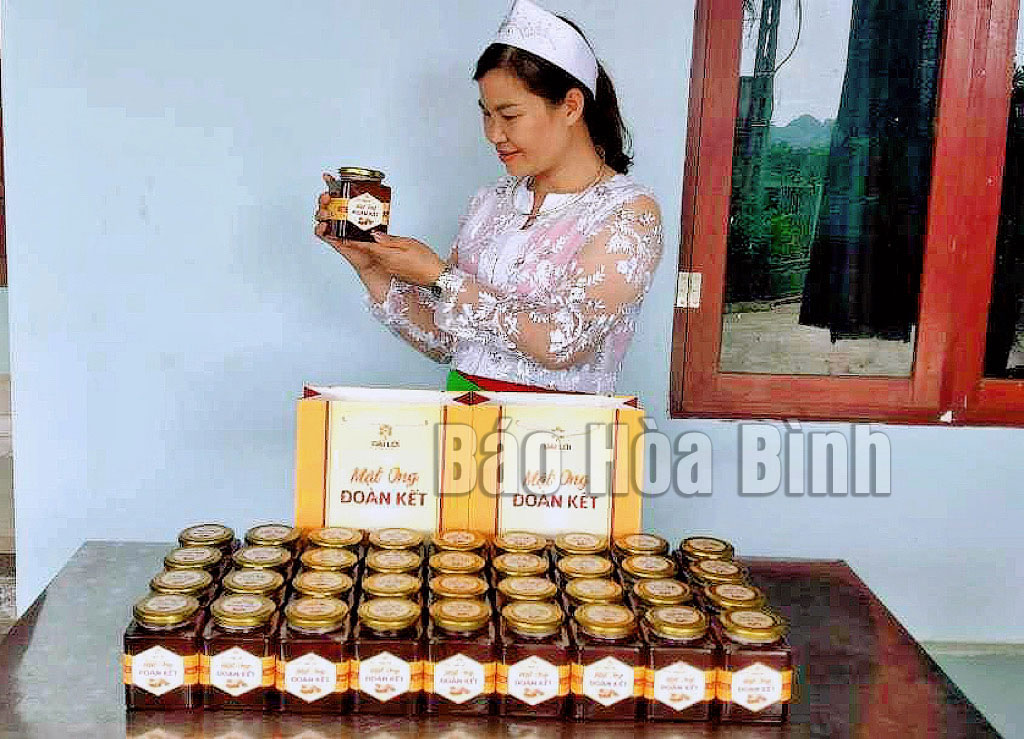(HBO) - Doan Ket commune in Yen Thuy district has 400 ha of natural forest. For generations, people in the commune have relied on the forest for livelihoods. Forests bring about abundant resources, including sweet and fragrant honey.
Doan
Ket honey of Yen Thuy district is rated a 3-star product at provincial level in
accordance with the One Commune One Product (OCOP) programme.
In the past, farmers in Doan Ket commune used to exploit honey in the wild as a
gift of forests. However, wild honey beehives were unevenly distributed so it was
not easy to find them. As demand for honey increases in the community,
some households decided to multiply wild bees to create a more stable source of
honey.
From three bee colonies at the beginning, farmers in Doan Ket commune have
developed into hundreds of bee colonies. Unlike hybrid varieties, local bees do
not feed on sugar or milk, so their honey is delicious.
To develop and bring high-quality honey to the market, members of Dai Loi
agricultural service cooperative are constantly learning and drawing experience
in bee keeping from other localities in the district and in the province. The
domesticated bees of the cooperative are raised naturally, taking pollen and
essential oils from flowers in local forests such as acacia and chestnut
flowers to make good honey which is good for health.
To get the golden honey with the scent of the forest, it is a must to be
meticulous in the production stages. For beekeepers, the most important step is
to choose a queen bee. If the queen bee is healthy, the bee colony will grow
and develop well, producing high-quality honey. Between March and June is
the time when domesticated bees in Doan Ket give the best honey.
Up to now, the cooperative has 20 member households who keep over 800 honeybee
colonies in total. As of the end of 2022, the cooperative produced about 1,000
litres of honey at a price of over 170,000 VND (7.16 USD) per
litre. In 2022, Doan Ket's
forest honey was rated a 3-star product at provincial level under the OCOP
programme.
It is being sold at 130,000 VND per 0.5 litre. With the goal of increasing
incomes, enhancing farmers' livelihoods and preserving the long-term value of
traditional occupations, the cooperative continues to research to improve
product quality. It also actively coordinates with local authorities and
farmers' associations of districts and communes in expanding consumption
markets.



